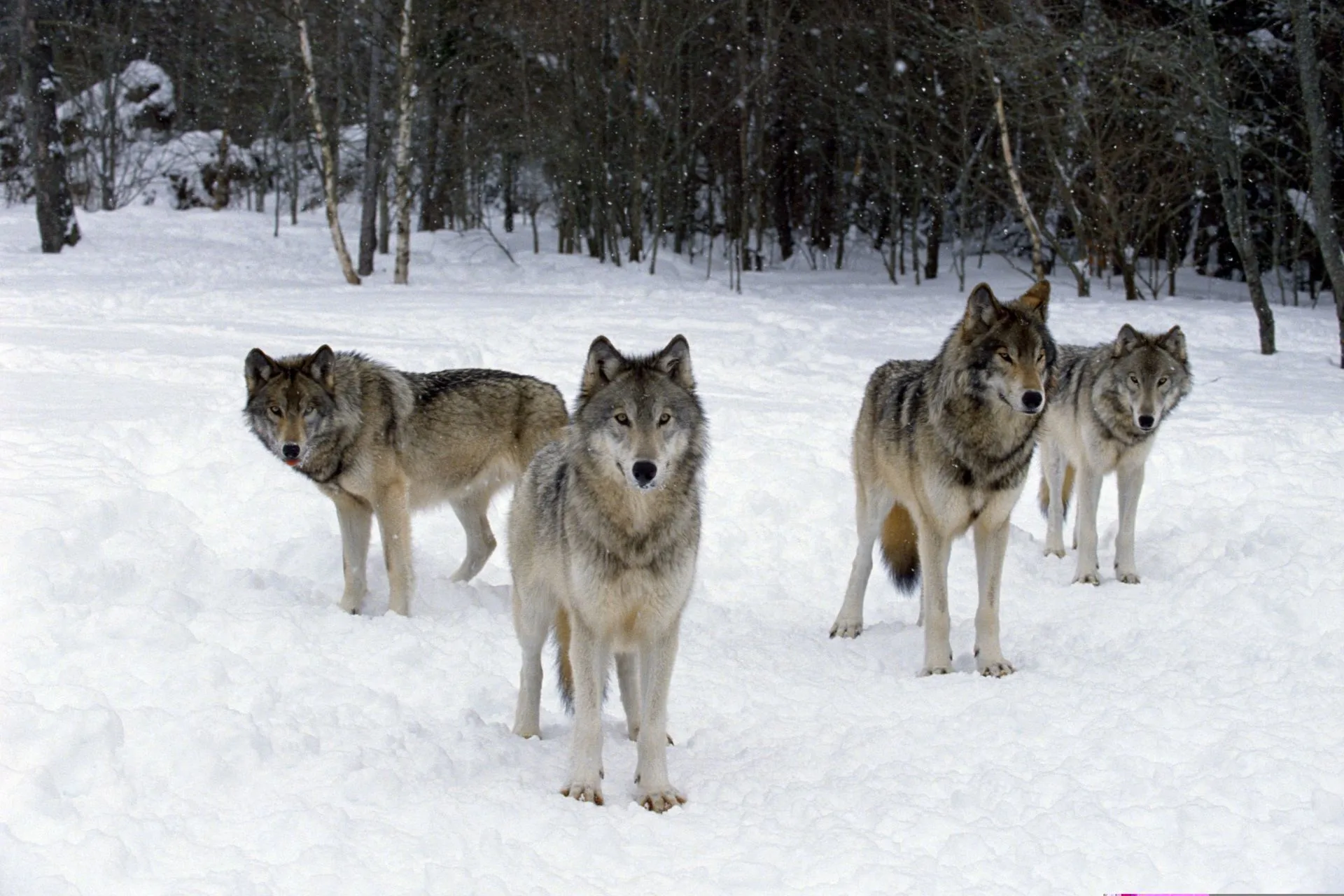The Outdoor Heritage Coalition, which is an outdoors group that has hunter, angler, trapper, and rancher interests in mind and is pro-responsible consumptive use of natural resources, recently made a statement about a lawsuit that has been filed. Here is what they posted:
A pair of Montana lawmakers and the Outdoor Heritage Coalition last week filed a lawsuit alleging the state is failing to carry out several Republican-sponsored laws that sought to reduce the number of wolves in the state.
The Sept. 30 complaint was filed in Sanders County District Court and names the Montana Fish and Wildlife Commission, a politically appointed board that sets hunting, fishing and trapping regulations, and Montana Fish, Wildlife & Parks as defendants.
The commission has failed to follow a series of laws passed in 2021 by the Republican-dominated Legislature to expand opportunities to hunt and trap wolves, the lawsuit claims. The plaintiffs are asking the court to require the commission “to utilize all available management tools authorized by statute, including extended trapping seasons, snaring and liberal harvest regulations, particularly in regions with the greatest number of wolves.”
Republican Reps. Paul Fielder, of Thompson Falls, and Shannon Maness, of Dillon, are listed as plaintiffs along with Yellowstone-area outfitter Craig Neal.
The complaint cites the 2024 wolf report published by FWP this summer, which estimated wolf populations statewide as remaining well above the minimums established by the management agreement between state and federal wildlife regulators. Since 2010, the statewide wolf population has remained relatively stable, generally falling between 1,000 and 1,200 wolves despite a changing patchwork of measures aimed at reducing that number.
The return of wolves to the state’s landscape since the 1980s, while heralded as a conservation success by many, has also carried costs for livestock producers in places where they roam. Ranchers and farmers are compensated for those losses through government-funded depredation programs. But many Republicans argue the population of wolves now exceeds the state’s carrying capacity.
Among the GOP-sponsored laws passed in 2021, the state directed the commission to establish hunting and trapping seasons “with the intent to reduce the wolf population in the state to a sustainable level.” But it also required the agency to ensure no fewer than 15 breeding pairs remain, in line with federal requirements.
Instead, hunting and trapping quotas set by the commission have fallen well short of the harvest levels needed to put a dent in the wolf population, they allege.
“Because wolves are so adaptive and prolific, to reduce the overall population it is necessary to harvest 30% of the adult wolves every year,” the lawsuit states, citing FWP’s wolf management plan.
The state’s failure to enact the Legislature’s policies has harmed the plaintiffs, the lawsuit claims: “For example, wolves attack members’ livestock and pets, they deplete ungulate populations and consequently reduce hunting and trapping opportunities for members, they cause a threat to members’ safety and they harm members’ businesses.”
The plaintiffs also state the commission’s hunting and trapping regulations limit opportunities for members of the Outdoors Heritage Coalition to hunt wolves. Neal, the outfitter listed as a plaintiff, has also lost business opportunities through wolves’ impact on elk populations that he and his clients could otherwise hunt, according to the complaint.
The plaintiffs also allege the commission’s actions are infringing on their rights “to harvest wild fish and wild game animals” under the Montana Constitution through “restrictive” regulations on wolf hunting and trapping. A failure by the commission to fully consider public comments submitted in advance of an August 2025 hearing to set wolf quotas also infringed on their right to participate in government decisions, the lawsuit claims.
In a text message on Friday, a spokesman for FWP and the Fish and Wildlife Commission declined to comment on pending litigation.
Reached by phone Friday afternoon, Rep. Fielder said he had no comment to add beyond what’s contained in the lawsuit. Rep. Maness likewise declined to comment when contacted, referring instead to a statement from the Outdoor Heritage Coalition.
“The overabundance of gray wolves in Montana adversely affects Montanans,” the organization stated. “The gray wolves attack livestock and pets, deplete ungulate populations and consequently reduce hunting and trapping opportunities, and in some cases threaten economic prosperity and physical safety.”
The organization has been involved in a couple other lawsuits related to the state’s wolf policies.
Most recently, it intervened on behalf of Montana government defendants in a 2023 lawsuit filed by the Flathead-Lolo-Bitterroot Citizen Task Force in federal court. U.S. District Judge Donald Molloy ruled against the state wildlife commission, finding that early- and late-season wolf trapping in some areas could put grizzly bears at risk.
They’ve also intervened on behalf of FWP in a lawsuit filed in 2022 by Wildearth Guardians, challenging state laws on killing wolves and the commission’s regulations enacting them. That lawsuit is still ongoing in Lewis and Clark District Court, with a pretrial hearing scheduled for late 2026.
About the Outdoor Heritage Coalition
The Outdoor Heritage Coalition (OHC) is a 501(c)(4) organization founded by five conservation-minded individuals from Montana—Kris Killorn, Jeremey Maus, Ben Erickson, Matt Lumley, and Jim Buell—who saw the need for a proactive, “in-your-face” organization that could tackle issues traditional non-profits often avoid. Unlike standard 501(c)(3) groups, the OHC can lobby extensively, file lawsuits, and take on controversial or politically sensitive issues without risking donor backlash for other organizations.
Essentially, the OHC acts as a “pit bull” for sportspersons and conservation groups: it addresses problems that larger or more cautious organizations are unwilling or unable to confront. This includes exposing wrongdoing, challenging restrictive policies, and supporting sportsperson interests where other groups are reluctant to engage. While still in its early stages, the coalition aims to become a valuable advocacy tool for outdoor enthusiasts and the organizations that represent them, without replacing those groups.
CLICK HERE to follow the Outdoor Heritage Coalition on Facebook and CLICK HERE to join today.
Photo credit: Comstock Images from Photo Images







